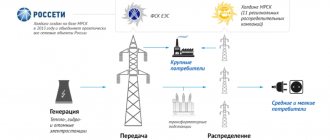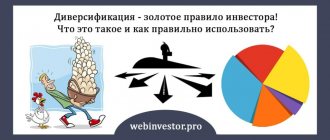It is difficult to overestimate the advantages of attracting investment. This includes additional financing for large projects, exchange of experience, and access to modern technologies and new ways of organizing production. Foreign investors also benefit from investing in the economy of another country. To represent his interests in the Russian Federation, the investor must understand his rights and restrictions imposed by local legislation.
Foreign investment in Russia
Foreign capital has an impact on the national economy, but the consequences can be not only positive. Disadvantages of investment include:
- suppression of local production;
- degradation of traditional sectors of the economy;
- lack of motivation to develop your own technologies;
- harming the environment through the organization of “dirty” industries, etc.
And at the same time, the Russian economy is positively affected by:
- growth in capital investments;
- efficient use of natural resources;
- increase in the number of jobs;
- expansion of the product range;
- currency inflow;
- additional funds to finance government programs;
- strengthening the international reputation of the Russian Federation;
- interest of new investors, etc.
To reduce the negative consequences, Federal Law No. 160-FZ “On Foreign Investments in the Russian Federation” was adopted. It contains the concept of a foreign investor and foreign investment, discusses the mode of operation of companies and other aspects of the issue.
Problems and development prospects
Despite the importance of tax investment incentives, we must not forget that the investor’s final decision is also influenced by other factors, such as the general economic and political situation, legal guarantees, etc. If the level of the economy is not attractive for investment, no benefits or preferences will encourage investment in it.
It is also necessary to take into account that a noticeable difference in the system of benefits for domestic and foreign investors in favor of the latter may lead to the withdrawal of capital outside the country by Russian businessmen in order to receive benefits.
Maintaining the necessary balance in investment incentives will create favorable conditions for the development of the country’s economic system.
Tax benefits for investors - foreign and Russian
Foreign investor: definition
To be precise, a distinction should be made between the terms “foreign” and “overseas” capital. In the first case, we are talking about the funds of foreign investors invested in the Russian economy, and in the second - about the property of Russian investors placed abroad. Thus, a foreign investor is a national of another country, a stateless person, or an organization belonging to another state.
Investments are classified according to their sources of origin, form of ownership and can be:
- private (carried out by private enterprises, organizations, banks or individual citizens);
- state (loans and credits provided by a country or group of states).
The property of a foreign investor in the Russian Federation can be presented as:
- currencies;
- real estate;
- movable property;
- property or corporate rights;
- a joint venture with Russian investors;
- intellectual property;
- valuable papers;
- rights to conduct economic activities (use of natural resources, land plots and other assets);
- services;
- information.
As stated in the above-mentioned law, the civil legal capacity of a foreign investor-legal entity is determined by the legislation of the country where it is established. The same applies to individual citizens, stateless persons, international organizations and other states. This means that they must be given the right to engage in foreign business activities in accordance with the laws of their country and comply with the requirements contained in federal acts.
Why do we need investment from abroad?
The business climate in our country is a difference in management teams and how effectively the authorities can work regarding preferential treatment.
The use of materials posted on the site is permitted only with the written permission of the Roscongress Foundation or the corresponding copyright holder.
The Russian Federation may also establish countervailing, anti-dumping, special protective and other restrictive customs measures.
Russian legislation retains the right of the Russian Federation to nationalization, but establishes the principle of prompt, adequate and effective compensation in favor of the foreign owner. Payment of compensation is made in the currency in which the investment was made, or in any other currency at the request of the investor.
You will learn about current changes in the CS by becoming a participant in the program developed jointly with Sberbank-AST JSC. Students who successfully complete the program are issued certificates of the established form.
PREFERENTIAL TREATMENT (preferential tariff) is a special preferential economic treatment granted by one state to another without extending to third countries. TASS, news agency (media registration certificate No. 03247 issued on April 2, 1999 by the State Committee of the Russian Federation for Press).
Who can be an investor
To the question whether a foreign entity can be an investor, Russian legislation gives a positive answer.
Not only investors, but also contractors, customers, users of capital investment objects and other persons, including foreigners, have the right to obtain the status of a subject of investment activity.
You can become an investor only if the area of investment is included in the list provided by law. Investment of foreign capital is impossible in some objects of civil rights due to restrictions on circulation in the Russian Federation.
For example, the following areas of investment are not available to foreign investment:
- Acquisition of patents, licenses, trademarks of foreign companies.
- Purchase of securities owned by foreign companies or individuals.
- Export of goods.
- Investing in enterprises located outside the Russian Federation.
If a legal entity or individual is one of those considered under Russian law as a foreign investor, it is sufficient that they exist in legal forms recognized as valid in their state of origin. Federal legislation does not require that their legal form correspond to the forms of organization of legal entities accepted in Russia.
Main investment objects
A foreign investor has the right to invest funds on the territory of the Russian Federation in any form not prohibited by law. He can take part in the privatization of state and municipal property by acquiring rights or ownership shares in the authorized capital of a company, buy shares, invest in joint ventures, issue loans to legal entities, etc.
It is customary to divide investments into:
- Direct (contributions from individuals/legal entities who fully own the company or control at least 10% of the shares/authorized capital of the company).
- Portfolio (purchase of less than 10% of shares, shares, bills, bonds related to the authorized capital of the company).
- Other (investments that do not belong to the mentioned categories of capital investment: loans from foreign investors and other receipts of funds belonging to international financial organizations, foreign governments).
Over 60% of revenues are concentrated in the Central Federal District. It is followed by a large margin (8% and 10%) by the Ural and Northwestern Federal Districts. The worst situation is with investment in facilities operating in the North Caucasus (0.03%).
As statistics show, direct investments are the most popular (over 40% of funds), second place is occupied by the third category of capital investments (about 37%). Intermediaries help foreign investors analyze the market for possible investments in Russian enterprises.
One of the ways to attract large investments into the Russian economy is a production sharing agreement (PSA), thanks to which the main objects of investment remain oil and gas production. They account for almost 90% of all foreign investments.
If an investor plans to become a user of subsoil, he takes part in a competition (auction) held by federal authorities. Having received a certain plot of land for use, he must sign an agreement specifying:
- terms of cooperation;
- production sharing procedure;
- term for granting rights to carry out work;
- the investor's obligations regarding the hiring of contractors, carriers, and workers.
A foreign investor who has entered into a production sharing agreement acquires the rights to develop a subsoil plot, for example, a mineral deposit. A special taxation procedure is provided for it (income tax and regular payments for the use of subsoil).
The PSA consists of two stages: the investment period (payments only) and the return of capital (taxes and payments). At the second stage, the products are divided into compensatory and profitable, and the investor begins to return the funds spent. If each participant in the agreement acts within the framework of the requirements specified in the law, the investor is guaranteed stable working conditions, and the state receives the agreed share of production.
Legal status of a foreign investor in the Russian Federation
As follows from the provisions of the federal legislation of the Russian Federation, foreign investors have the same legal status as Russian ones. In addition, the state promises that the legal regime for the activities of foreign investors in Russia will be favorable for investors from abroad. They can:
- independently determine the volume and direction of deposits;
- enter into agreements with other investors;
- own and manage objects and investment results;
- transfer under an agreement/contract the rights to make and results of capital investments;
- control the intended use of funds;
- freely withdraw funds in foreign currency outside the Russian Federation;
- pool your own funds with the capital of other investors, etc.
State policy in the field of foreign investment is implemented by the Government of the Russian Federation. This particular authority:
- determines measures to control the activities of subjects;
- is in charge of introducing prohibitions/restrictions on investments and issues bills;
- decides which projects have priority;
- regulates the interaction of investors with individual constituent entities of the Russian Federation;
- creates and coordinates programs to attract new investments.
Along with the Law “On Foreign Investments,” the legal status of foreign investors in the Russian Federation is regulated by numerous provisions and by-laws.
The most significant include clause 4 of Article 1 of Part 1 of the Civil Code of the Russian Federation dated November 30, 1994, Art. 210 Arbitration Procedure Code of the Russian Federation dated May 5, 1995 and Part 2 of Art. 433 Code of Civil Procedure of the RSFSR dated June 11, 1964.
In addition, there are also international (often bilateral) agreements that stipulate aspects of the mutual recognition of the rights and obligations of legal entities, determine their status, and modes of operation.
It is customary to distinguish two main types of regimes: absolute and relative, but the second classification is more often used. The most common schemes can be considered national treatment and the most favored nation principle.
What does national treatment provide?
According to the Convention for the Protection of Investor Rights, signed on March 28, 1997, foreign investors are subject to national treatment. The principle of this legally binding provision is established by international treaties and agreements, as well as federal legislation.
The national treatment provided for foreign investors in the Russian Federation assumes that nationals of another country, stateless persons and legal entities have the same rights and obligations as Russian citizens and companies.
This principle is enshrined in the Civil Code and the Constitution of the Russian Federation.
When determining the legal status of foreign investors, national treatment is the main principle. Most often it is used in relation to:
- copyright and related rights;
- economic activities of foreign investors;
- foreign-made goods;
- free access to judicial bodies;
- legal assistance;
- social security.
The government sets the limits for the application of this principle, taking into account the interests of the country, as well as in order to prevent foreign investors from abusing their rights. There are the following types of exemptions for foreign investors: stimulating and restrictive exemptions. The specified measures and benefits are established by Russian legislation.
What is the most favored nation principle?
In contrast to the national regime, which blurs the line between the rights of foreign and domestic investors, the most favored nation principle equalizes the position of foreign organizations and foreign citizens. At the same time, a privileged legal regime, in particular, provides foreign investors in one country with the same rights that investors in another country received. All of them have the right to count on benefits when importing equipment and raw materials, exemption from customs taxes and duties, etc.
The benefits of this regime can be taken by investors who invest in underdeveloped sectors of the economy, enterprises located in hard-to-reach regions with poorly developed infrastructure and requiring large capital investments.
Determination of the foreign investment regime and legal guarantees for them
Smaller investors are looking at breweries, hotels, dry cleaners, and fast food chains.
Of great importance in regulating the issue of the foreign investment regime are the resolutions of the UN General Assembly, which uphold the state’s right to nationalization and provide for the payment of compensation to the owner of nationalized property.
A Russian commercial organization receives the status of a commercial organization with foreign investment from the day a foreign investor joins its membership. From this day on, a commercial organization with foreign investment and a foreign investor enjoy legal protection, guarantees and benefits established by this Federal Law.
MOSCOW, March 30. /TASS/. Services for registering a business and obtaining permits for residents of preferential regimes in the Far East will become available online and will be integrated into the super services that are currently being created in Russia under the national project “Digital Economy”.
A Russian commercial organization receives the status of a commercial organization with foreign investment from the day a foreign investor joins its membership. From this day on, a commercial organization with foreign investment and a foreign investor enjoy legal protection, guarantees and benefits established by this Federal Law.
In the development of free economic zones, such stages as warehouse and transit, industrial free, as well as integrated entrepreneurship zones are distinguished.
Portfolio investments differ from direct investments in that an investor, having acquired assets in the form of securities for profit (stocks, bonds), thereby obtaining the rights to make a profit, does not have the opportunity to exercise management control over the enterprise. This is the general understanding.
Thus, a foreign legal entity, taking into account the exceptions established by an international treaty and federal law, cannot carry out internal transportation in the Russian Federation by road transport owned by this legal entity.
Exemptions in relation to this rule are provided for transactions, prior to which the foreign investor already directly or indirectly exercised control over more than 50% of the voting shares of the Business Company (Article 4 of the Law).
In addition to the most favored nation and national regimes, a particularly preferential (preferential) regime can also be established. Preferential treatment is provided for foreign investors investing on a particularly large scale or in particularly important and capital-intensive sectors of the national economy.
Restrictions for foreign investors
In order to prevent the occurrence of destructive consequences for the state’s economy, in the Russian Federation there is a set of measures that control the process and areas of capital investment. So, in Russia it is practiced:
- ban on the admission of foreign investors to strategic sectors of the economy;
- accreditation, notification and licensing procedure;
- a ban on conducting activities in certain areas of the economy;
- mandatory equity participation of the state in enterprises financed by a foreign investor;
- establishment of a special fiscal regime;
- application of concession agreements;
- control of all types of activities of a foreign investor related to the development of subsoil and natural resources.
In addition, government agencies monitor compliance with the requirements for the depositor.
Banking activities
The Russian authorities do not object to the investment of funds by foreign companies in the authorized capital of domestic banks. However, if previously the maximum share of capital reached 50%, then from January 2021, according to the procedure specified in Art. 18 of Law No. 372-FZ “On Banks and Banking Activities” the maximum volume of such deposits was 13.44%. This figure is due to the obligations assumed by the Russian Federation when joining the WTO.
Some foreign investments are not taken into account when determining the quota. According to the Central Bank of Russia, the share of foreign capital will be calculated annually.
In media business investing
Since 2021, amendments to the law on mass media have come into force. According to this document, the share of foreign capital in Russian media cannot exceed 20%, although before that time it was 50%.
These amendments affected about 1,000 media outlets with foreign shareholders. The restriction has forced large companies to reconsider their shareholder structure or change owners. The changes affected the STS Media holding and the printed press (Russian edition of Forbes, Vedomosti, The Moscow Times). NBC Universal and AMC Network left the market.
Participation in the insurance business
Insurance is a special branch of the economy, the purpose of which is not only to protect the property interests of Russian citizens and legal entities, but also to create a strong economic environment, without which economic growth is impossible. The insurance business helps strengthen the financial system of the Russian Federation through constant investments in the economy, including foreign ones.
The state strictly regulates the activities of foreign entities in the insurance industry, insurance supervisory authorities control the volume of the market for these services (quotas on the permissible share of foreign investment).
The quota is calculated as the ratio of the size of the contribution of the investor and their subsidiaries in the authorized capital of insurance companies (IC) to the total authorized capital of the insurance company. As stated in paragraph 3 of Article 6 of the Law “On the Organization of Insurance Business in the Russian Federation”, if the specified quota is more than 50%, the insurance supervisory authorities do not license the activities of insurance companies that are subsidiaries of the main investor organizations or those that have The share of investors in the authorized capital exceeds 49%.
The same document states that payment by foreign investors for shares of insurance companies they own can only be made in Russian rubles.
In diamond mining
The territories where diamond deposits are located are included in the list of subsoil areas of federal significance, so only licensed companies will be able to obtain the right to develop them.
As follows from the amendments to the federal law “On Subsoil”, access to deposits is granted to companies in which investors from abroad control no more than 25% of the capital.
Previously, this threshold was 10%, but in order to attract strategic foreign investors to the extractive industries, concessions had to be made. Although the increase in the share of foreign investors in the management of the company will not allow them to make key decisions, these changes will stimulate the process of studying the subsoil and production of the mineral resource base of the Russian Federation.
Investing in strategic companies
Russian legislation does not prohibit investors from making investments in the form of purchasing shares (shares) in the authorized capital of business companies (ECOs) of strategic importance, and making other transactions that give them control over such companies. In November 2014, the President of the Russian Federation signed draft amendments to the law dated April 29, 2008 No. 57-FZ, which simplifies the investment procedure, but at the same time prescribes:
- coordinate the deal with the Government Commission (Article 7);
- notify the authorized executive body about the transaction being carried out (Article 14).
The notification procedure is contained in the Decree of the Government of the Russian Federation dated October 27. 2008 No. 795 and provides for the transfer of data about the company that owns shares (stakes) in the enterprise and about the persons controlling it.
In the field of land use
The principle of national treatment also applies to issues of property rights. In general, investors can buy and alienate property, pledge it, own and use it under the same conditions as Russian citizens and legal entities, but with some restrictions.
Typically, these restrictions affect land ownership. Chapter 1 of Law No. 101 “On the turnover of agricultural land” states that such persons cannot acquire ownership of land plots included in the list of agricultural lands.
TARIFF PREFERENCES IN THE EAEU
| | | Regulations on the conditions and procedure for applying the unified system of tariff preferences of the Eurasian Economic Union |
| | | |
| | | Lists of developing and least developed countries |
| | | |
| | | List of preferential goods |
| | | |
| | | Agreement on Rules for Determining the Origin of Goods from Developing and Least Developed Countries |
| | | |
| | | EAEU Treaty (part) |
| |
Source – FCS website
2. The customs authority makes a decision on the country of origin of goods and (or) the provision of tariff preferences based on the results of monitoring the correctness of determining the country of origin of goods in the form and in the manner determined by the federal executive body authorized in the field of customs affairs.
The Federal Customs Service received a complaint from U LLC against the customs decision to cancel tariff preferences in relation to the declared goods.
The applicant, with reference to the Protocol on Amendments and Additions to the Agreement on the Rules for Determining the Origin of Goods from Developing and Least Developed Countries dated December 12, 2008, approved by the decision of the Customs Union Commission dated September 23, 2011 No. 780, indicates that the basis for the abolition of preferences is either the receipt information from the authorized bodies of the beneficiary country that the certificate was not issued, canceled (revoked) or issued on the basis of invalid, unreliable information or incomplete documents and (or) information, or failure to receive such a response within 6 months. However, such a request was not sent by customs to the competent authorities of the beneficiary country. In addition, the applicant considers the customs decision to be unlawful, since it was made within a time frame that did not allow U LLC to restore the preferential treatment.
During the consideration of the complaint of U LLC, the following was established.
In order to confirm the country of origin of goods, when declaring them, LLC “U” was presented with a certificate of origin of goods in form “A”. The goods are released in accordance with the customs procedure for release for domestic consumption with the payment of a customs duty amounting to 75 percent of the import customs duty rate of the Unified Customs Tariff of the Customs Union, approved by decision of the Council of the Eurasian Economic Commission dated July 16, 2012 No. 54 (from January 1, 2015 . in connection with the entry into force of the Treaty on the Eurasian Economic Union of May 29, 2014, the concept “Customs Union” used in international treaties is understood as the “Eurasian Economic Union”).
In accordance with Articles 99, 111 of the Customs Code of the Customs Union, as part of the selective control of the validity of decisions made on the country of origin of goods and (or) the provision of tariff preferences, the higher customs authority established that the original certificate of origin of goods in form “A” was filled out improperly, namely The seal imprint in column 11 of the certificate is unreadable and blurred.
The certificate was sent by customs for subsequent verification by the Federal Customs Service of Russia. Based on the results of the inspection, the Federal Customs Service of Russia sent information about the improper completion of the certificate of origin of goods of form "A" and its non-compliance with the Requirements for the preparation of declarations-certificates of the origin of goods in form "A", contained in Appendix No. 2 (hereinafter referred to as the Requirements) to the Determination Rules origin of goods from developing and least developed countries that are users of the unified system of tariff preferences of the Customs Union (hereinafter referred to as the Rules), approved by the Agreement between the Government of the Russian Federation, the Government of the Republic of Belarus and the Government of the Republic of Kazakhstan dated 12.12.2008.
In this regard, customs decided to refuse to provide tariff preferences in relation to the goods declared by U LLC, of which the applicant was notified.
Confirmation of the country of origin of goods is carried out in accordance with the norms of paragraph 2 of Article 58, Article 59, paragraph 1 of Article 61 and paragraph 1 of Article 62 of the Customs Code of the Customs Union.
Tariff preference means an exemption from import customs duties in respect of goods originating from countries that, together with the Russian Federation, form a free trade zone or have signed agreements aimed at creating such a zone, or a reduction in the rates of import customs duties in respect of goods originating from developing or least developed countries using the unified system of tariff preferences of the Customs Union (the provisions of Article 74 of the Customs Code of the Customs Union and Article 36 of the Law of the Russian Federation of May 21, 1993 No. 5003-1 “On the Customs Tariff”).
In accordance with paragraph 3 of Article 37 of the Treaty on the Eurasian Economic Union (signed in Astana on May 29, 2014) (hereinafter referred to as the Treaty) for the purpose of providing tariff preferences for goods imported into the customs territory of the Union from developing or least developed user countries unified system of tariff preferences of the Union, the rules for determining the origin of goods from developing and least developed countries established by the Commission of the Customs Union are applied.
Based on Article 36 of the Treaty, in order to promote the economic development of developing and least developed countries, the Union, in accordance with this Treaty, may provide tariff preferences in respect of goods originating from developing countries - users of the unified system of tariff preferences of the Union and (or) least developed countries - users of the unified system of tariff preferences of the Union.
In relation to preferential goods imported into the customs territory of the Union, originating from developing countries - users of the unified system of tariff preferences of the Union, import customs duty rates are applied in the amount of 75 percent of the import customs duty rates of the Unified Customs Tariff of the Eurasian Economic Union.
For the purposes of implementing the provisions of Article 36 of the Treaty, before the entry into force of the decision of the Customs Union Commission establishing the conditions and procedure for applying the unified system of tariff preferences of the Union in relation to goods originating from developing countries and (or) least developed countries, the Protocol on the unified system of tariff preferences of the Customs Union is applied Union dated December 12, 2008.
Until the entry into force of the decision of the Customs Union Commission establishing the rules for determining the origin of goods provided for in paragraph 3 of Article 37 of this Treaty, the Agreement on the rules for determining the origin of goods from developing and least developed countries dated December 12, 2008 shall apply.
In accordance with the Protocol on the Unified System of Tariff Preferences of the Customs Union dated December 12, 2008, the list of developing countries - users of the system of tariff preferences, the list of goods originating and imported from developing and least developed countries, upon import of which tariff preferences are provided, are approved by the Commission of the Customs Union.
These lists were approved by the decision of the Interstate Council of the Eurasian Economic Community dated November 27, 2009 No. 18 and the decision of the Customs Union Commission dated November 27, 2009 No. 130 “On the unified customs and tariff regulation of the customs union of the Republic of Belarus, the Republic of Kazakhstan and the Russian Federation.”
According to these lists, goods originating from developing countries and least developed countries, the import of which are granted tariff preferences, include, among other things, goods of group XX of the Commodity Nomenclature for Foreign Economic Activity of the Eurasian Economic Union “ name of goods
”, and the list of developing countries - users of the system of tariff preferences of the Customs Union includes “
Country to which the certificate was issued
”.
According to the Rules, in order to certify the origin of goods from a developing or least developed country that is subject to a preferential tariff regime, the person moving the goods submits a declaration - a certificate of origin of goods in form "A", which is filled out in accordance with the Requirements for the preparation of declarations - certificates of origin of goods according to form “A”.
Based on the materials of the complaint, violations of the execution of column 11 of the certificate of origin of goods in form “A” were identified by customs and the Federal Customs Service of Russia as a result of a visual examination and comparison of the actual completion of columns of the certificate with the rules specified in the Requirements.
Thus, based on the Requirements, column 11 of the certificate of origin of goods in form “A” must contain data on the date and place of certification of the certificate, the name and seal of the authorized body of the beneficiary country, as well as the signature of an official of the said body. The seal must have a clear imprint, allowing, if necessary, identification for its authenticity.
The presence of a fuzzy seal imprint in column 11 of the certificate of origin of goods in form “A” is a violation of the Requirements.
In accordance with Section VIII of the Rules, a certificate may be invalidated in cases where:
no response has been received within 6 months regarding the requested certificate from the competent authorities of the country of export or country of origin of the goods;
there is confirmed information from the competent authorities of the country of export that the certificate was not issued (falsified) or was issued on the basis of invalid documents and (or) false information:
based on the results of research carried out by the customs authorities of the country of import, and (or) based on information received from requests sent to the competent authorities of the country of export or country of origin of the goods, it was revealed that the certificate was issued in violation of the requirements established by the Rules.
Carrying out additional research and inquiries to the competent national authorities of the country that certified the submitted certificate to confirm the presence of the above circumstances visually is not required in accordance with the Rules.
In addition, in accordance with paragraph 4 of Article 61 of the Customs Code of the Customs Union, if the certificate of origin of goods is issued in violation of the requirements for its execution and (or) completion established by the customs legislation of the Customs Union, the customs authority independently makes a decision to refuse to consider such a certificate as grounds for granting tariff preferences.
Thus, the customs had grounds for carrying out verification activities in relation to the specified certificate of origin of goods, declaring it invalid and making a decision to refuse to provide tariff preferences in relation to the goods declared by U LLC.
The applicant’s reference to the Protocol on Amendments and Additions to the Agreement on the Rules of Determining the Origin of Goods from Developing and Least Developed Countries dated December 12, 2008, approved by decision of the Customs Union Commission dated September 23, 2011 No. 780, is untenable due to the fact that the internal state approval procedures the said Protocol has not been completed and it has not been signed. Accordingly, the provisions of this Protocol are not applicable.
The argument in the complaint that the controversial decision was made within a time frame that did not allow U LLC to restore the preferential treatment is untenable due to the fact that, in accordance with Article 99 of the Customs Code of the Customs Union, customs authorities carry out customs control after the release of goods for 3 (three) years from the date the goods are under customs control. At the same time, this period is not made dependent on the possible financial risks of participants in foreign economic activity and the achievement of business goals.
At the same time, despite the fact that the above arguments of the applicant were not confirmed, the complaint of LLC “U” was satisfied on the following grounds.
In accordance with subparagraph 31 of paragraph 1 of Article 4 of the Customs Code of the Customs Union, customs control is understood as a set of measures carried out by customs authorities, including using a risk management system, in order to ensure compliance with the customs legislation of the Customs Union and the legislation of the member states of the Customs Union.
According to paragraph 1 of Article 94 of the Customs Code of the Customs Union, when carrying out customs control, customs authorities proceed from the principle of selectivity and are limited only to those forms of customs control that are sufficient to ensure compliance with the customs legislation of the Customs Union and the legislation of the member states of the Customs Union, control over the implementation of which is entrusted to the customs authorities .
The object of customs control, in accordance with subparagraph 2 of paragraph 2 of Article 95 of the Customs Code of the Customs Union, is the customs declaration, documents and information about goods, the presentation of which is provided for by the customs legislation of the Customs Union.
Paragraph 1 of Article 98 of the Customs Code of the Customs Union imposes on the declarant and persons carrying out activities in the field of customs affairs and other interested parties the obligation to submit to the customs authorities the documents and information necessary for carrying out customs control.
By virtue of Article 99 of the CU Customs Code, customs control after the release of goods is carried out in the forms and procedures established by Chapters 16 and (or) 19 of the CU Customs Code.
Article 110 of the Customs Code of the Customs Union establishes a list of forms of customs control, which includes, among other things, verification of documents and information, as well as customs inspection.
The purpose of checking documents and information submitted during customs operations, defined in paragraph 1 of Article 111 of the Customs Code of the Customs Union, is to establish the reliability of information, the authenticity of documents and (or) the correctness of their filling and (or) execution.
In accordance with paragraph 2 of Article 111 of the Customs Code of the Customs Union, verification of the reliability of information provided to customs authorities when performing customs operations is carried out by comparing them with information obtained from other sources, analyzing customs statistics, processing information using information technology, as well as other methods, not prohibited by the customs legislation of the Customs Union.
The procedure for checking documents and information after the release of goods and (or) vehicles was approved by Order of the Federal Customs Service of Russia dated August 25, 2009 No. 1560 (registered by the Ministry of Justice of Russia on November 20, 2009, No. 15262).
According to subparagraph 2 of paragraph 7 of the said Procedure, one of the areas of verification is the correctness of determining the country of origin of goods. Clause 25 of this Procedure establishes that the results of the inspection are documented in an act of verification of documents and information after the release of goods and (or) vehicles. The end date of the inspection is the date of signing the act.
In accordance with paragraph 1 of Article 122 of the Customs Code of the Customs Union, the purpose of customs inspections by customs authorities is to ensure that persons comply with the requirements established by the customs legislation of the Customs Union and the legislation of its member states.
Paragraphs 10 – 12 of Article 122 of the Customs Code of the Customs Union establish that the procedure for conducting a customs inspection is determined by Chapter 19 of the Customs Code of the Customs Union, the results of a customs inspection are documented in accordance with the legislation of the member states of the Customs Union, the procedure for making decisions based on the results of a customs inspection is determined by the legislation of the member states of the Customs Union .
Parts 1, 5 of Article 178 of the Federal Law of November 27, 2010 No. 311-FZ “On Customs Regulation in the Russian Federation” (hereinafter referred to as the Federal Law on Customs Regulation) stipulate that the results of a customs inspection are formalized by a desk customs inspection report or an on-site customs inspection report. checks. In case of detection of non-payment or incomplete payment of customs duties and taxes on the basis of a customs inspection report, the head (deputy head) of the customs authority that conducted the inspection, or a person authorized by him, simultaneously makes the appropriate decision (relevant decisions) in the field of customs affairs, if such a decision is made (such decisions) is within its competence.
In accordance with Article 110 of the Federal Law on Customs Regulation, customs authorities monitor the correctness of determining the country of origin of goods in order to ensure compliance with customs tariff and non-tariff regulation measures in cases where the application of such measures depends on the country of origin of goods, before and after the release of goods.
Based on the results of monitoring the correctness of determining the country of origin of goods, the customs authority makes a decision on the country of origin of goods and (or) the provision of tariff preferences in the form and manner determined by the federal executive body authorized in the field of customs affairs.
If, in the course of monitoring the correctness of determining the country of origin of goods by the customs authority, it is discovered that the conditions for the provision of tariff preferences established by the customs legislation of the Customs Union are not met, the customs authority, in the prescribed manner, makes a decision to refuse to provide tariff preferences.
The procedure for making decisions on the country of origin of goods and (or) granting tariff preferences (hereinafter referred to as the Procedure) was approved by order of the Federal Customs Service of Russia dated August 2, 2012 No. 1565 (registered by the Ministry of Justice of Russia on August 27, 2012, reg. No. 25268).
In accordance with paragraphs 19, 21 of the Procedure, if, based on the results of customs control carried out after the release of goods, it is discovered that the declared information about the country of origin of the goods is unreliable, including if the declared information about the country of origin of the goods is based on criteria other than those used provided for by international treaties of the member states of the Customs Union regulating the rules for determining the country of origin of goods, or that the conditions for the provision of tariff preferences provided for by the customs legislation of the Customs Union are not met, the authorized official makes a decision in the form in accordance with Appendix No. 1 to the said order.
Thus, the basis for making a decision on the country of origin of goods and (or) granting tariff preferences is the establishment of the above facts based on the results of customs control. At the same time, based on the provisions of paragraph 22 of the Procedure, this decision is made during customs control after the release of goods in the form of verification of documents and information or customs verification after registration of the verification results.
From the materials on the complaint it follows that the requirements of Articles 111, 122 of the Customs Code of the Customs Union and the Procedure approved by Order of the Federal Customs Service of Russia dated August 2, 2012 No. 1565 were not met by customs, the results of customs control were not recorded in the relevant acts. Accordingly, the procedure for making the appealed decision was violated.
Under such circumstances, the customs decision to cancel tariff preferences in relation to the goods declared by U LLC was canceled by the Federal Customs Service of Russia.
Benefits for depositors
Tax breaks are another way to stimulate foreign owners of capital. Providing foreign investors with preferential loans or loan guarantees is an excellent financial motivation for them.
The size and conditions for providing benefits depend on the investor’s share in the authorized capital of the organization. According to Art. 5. Law “On Foreign Investments in the Russian Federation”, if an investor owns 10% or more of a share in the authorized capital of an organization, then when reinvesting he can enjoy all the benefits listed in this law. Similar conditions apply to Russian companies that receive the status of an organization with foreign deposits.
In addition, benefits for foreign investors may be of a non-tariff nature. For example, if a company's capital consists of 30% of foreign investments, it has the right to export manufactured products without a license.
Regional benefits
The federal authorities allow self-government bodies of constituent entities of the Russian Federation, within the limits of their powers at the regional level:
- provided foreign investors with benefits and guarantees;
- financed and otherwise supported investment projects of foreign investors.
To do this, they can use local budget funds, budgets of constituent entities of the Russian Federation and extra-budgetary material resources.
Tax concessions for residents of special economic zones
As reported on, special benefits are provided for residents of special economic zones. Thus, they are subject to reduced tax rates on profits, are exempt from paying property tax for 5-10 years (depending on the zone), if it was created or purchased to conduct business in the territory of the zone, is located and used within this zone;
Some constituent entities of the Russian Federation exempt residents from paying transport tax.
At the federal level, investors may be exempt from paying land tax for a period of 5 to 10 years if the plot is located in a special zone.
In addition, some investors may receive additional benefits in the form of accelerated depreciation and lower premium rates.
Benefits for entrepreneurs engaged in certain types of activities
Art. 16. of the Investment Law contains a list of benefits for the payment of customs duties and other concessions. To receive them, investors must implement priority investment projects (large investments in production and social infrastructure, high-tech sectors of the manufacturing industry) in accordance with the customs legislation of the Russian Federation and legislation on taxes and fees.
Thus, the import of equipment and spare parts for it into the Russian Federation is not subject to taxes if this property is a contribution to the authorized capital of the organization.
Privileges for Skolkovo residents
Is it profitable for investors to participate in the Skolkovo project? In recent years, this complex has become the center of the Russian infrastructure for the development of scientific and technical innovations. Attractive tax concessions await project participants.
In addition, according to amendments to the law of September 28, 2010 No. 244-FZ “On Innovation”, the maximum share of participation of foreign legal entities in the authorized capital of small and medium-sized enterprises increased from 25 to 49%.
Opinions are divided
The subject of increased attention is the topic of providing preferences for foreigners investing in the economy of our country. There are two diametrically opposed points of view on this problem.
- The first is that providing measures to support foreign investment activities is advisable and can have a positive impact on the country’s economy, increasing capital inflows.
- Representatives of the second point of view believe that tax benefits for foreign investors should be abolished, because they are not only ineffective, but even harmful, creating unequal conditions for competition.
Principles of taxation of foreign investors
As stated in Art. 246 of the Tax Code of the Russian Federation, investors conducting business in Russia through a representative office and receiving income must pay income tax. Tax agents are required to timely transfer taxes to budgets or extra-budgetary funds, inform tax authorities about the impossibility of collecting tax from the taxpayer, take into account income paid to taxpayers, etc.
Legal entities that receive investments from abroad must promptly provide the Bank of Russia with data on direct investments, including the identification code of the direct investor in a foreign country and other information about the direct investment enterprise. Failure to fulfill or improper performance of these duties is considered a violation of the legislation of the Russian Federation.
To attract investment and increase the tax base, some constituent entities of the Russian Federation (Novgorod and Tver regions, Chuvashia, Tatarstan, St. Petersburg and Yekaterinburg) practice tax holidays for foreign investors - full or partial exemption from paying income tax for a certain period after investing funds. Temporary restrictions on the flow of money into the budget are compensated by the creation of additional jobs, the development of infrastructure and production, and the introduction of advanced technologies.
Read more information about.
Types of tax incentives
All investment benefits are divided into several types:
- reduced rates of most taxes;
- exemption from customs duties;
- so-called “tax holidays” (a certain period during which you don’t have to pay contributions);
- investment tax credits;
- creation of special zones for the production of export-oriented and high-tech products, etc.
Let us consider the mechanism for providing these preferences in more detail.
About the rights of foreign investors
A foreign investor has considerable freedom of action on the territory of the Russian Federation. For example, he
has the right to acquire shares of commercial organizations and government securities, take part in the privatization of property, rent land, use real estate and natural resources of the country. Moreover, Russian legislation contains basic guarantees of the rights of foreign investors on the territory of the state.
In accordance with the laws of the Russian Federation, a foreign investor has the right to remove from the country property and information originally imported into Russia as a foreign investment.
In this case, the principles of quotas, licensing and the application of other measures of non-tariff regulation of foreign trade activities do not apply to it.
Let's take a closer look at the basic rights of foreign investors.
Subrogation
The main problem of international investment law is ensuring the protection of deposits. Not a single investor investing in the unstable Russian economy is immune from the application of restrictions or forced seizure measures: nationalization, requisition, etc.
To some extent, the rights of a foreign investor can be protected by the principle of subrogation, which operates in investment legislation, the law of individual countries and international law.
Risks may be political/non-commercial (military action, civil unrest, nationalization and other forms of forced seizure of property). Typically, investment insurance in this case is carried out by state or international insurance organizations acting on behalf of the capital exporting country.
An investment guarantee scheme at the national and international levels involves the conclusion of an insurance contract between the investor and the guaranteeing body.
Compensation for requisition or nationalization
In general, depositors' property cannot be seized, requisitioned or nationalized. Investors have the right to demand compensation for losses incurred due to illegal actions or inaction of government bodies and officials.
When requisitioning or nationalizing property, the foreign investor is paid the full value of the requisitioned property and other losses. If the circumstances in connection with which the requisition is made no longer apply, the foreign investor may apply to the court to demand the return of the remaining property. At the same time, he is obliged to return the amount of compensation received, taking into account losses from the decrease in the value of the property.
Compensation for withdrawal of investments provided by foreign investors must be paid as quickly as possible, without unreasonable delay.
Application of the stabilization clause
The taxation of investors is characterized by the effect of a “stabilization clause” - an important investment guarantee aimed against a tightening of the tax burden. This feature of taxation is taken into account and applied by courts considering disputes related to the protection of foreign investors.
The application of a stabilization clause to a foreign investor protects the interests of the investor from the tightening of the laws of the recipient country regulating the investment regime. If national legislation changes in a direction unfavorable to the investor, he can count on a delay in the application of these changes.
The stabilization clause was first discussed in Art. 14 of the RSFSR Law of June 26, 1991 “On investment activities in the RSFSR.” Its application in the new Foreign Investment Law depends on a number of conditions. This principle:
- applies to commercial organizations with foreign investments of at least 25% of the authorized capital and to investors/organizations that have invested in priority projects.
- applied when the total tax burden or the regime of prohibitions and restrictions in relation to foreign deposits is tightened in comparison with the total tax burden and regime in force on the date of commencement of project financing;
- guaranteed during the payback period of the investment project (no more than 7 years from the date of commencement of capital investment in the project).
Use of investment income
A foreign investor can freely use his income and profits on the territory of the Russian Federation for any purposes that do not contradict Russian legislation. Transfer of income, profits and other funds received in foreign currency outside the Russian Federation, as well as reinvestment of profits received by non-resident investors are among the basic rights of investors.
Investment income is considered:
- profit, dividends, interest;
- sums of money received in fulfillment of obligations under contracts and other transactions;
- funds received by the investor after the liquidation of the company or alienation of invested property, property rights and intellectual rights;
- compensation provided for in Art. 8 of the Law on Foreign Investments.
How is the legal regulation of foreign investment carried out?
In connection with the possible emergence of problems in investment law, the legislation of the Russian Federation regulates legal relations in the field of investing foreign capital. Foreign investors and commercial organizations that have received investments are subject to the general and special norms of Russian tax legislation (Tax Code, federal laws, instructions of the Ministry of Taxes and the State Tax Service of Russia.).
Legal relations in this area are also coordinated by international treaties. It should be taken into account that the norms of international agreements are more important than the requirements of Russian legislation.
International legal regulation of deposits
The main documents in the field of investment activity are considered to be the Washington Convention (03/18/1965) “On the Procedure for Resolving Investment Disputes between States by Foreign Persons” and the Seoul Convention (10/11/1985) “On the Establishment of a Multilateral Investment Guarantee Agency”.
The mechanism for protecting the rights of foreign investors under the Seoul Convention allows them to insure their deposits with the Multilateral Investment Guarantee Agency (MIGA) against loss of investment as a result of:
- wars/civil unrest;
- nationalization;
- violation of the contract by the recipient state (in the field of concession agreements);
- state ban on converting local currency into freely convertible currency.
If these conditions occur, MIGA pays compensation to the investor and assumes the right of claim against the host state. A private law conflict becomes a public law dispute between the agency and the recipient country. The amount of insurance compensation is determined by the terms of the country’s agreement with MIGA.
Domestic regulation of investments
Foreign investors have almost the same rights as residents of the Russian Federation. State guarantees of legal protection for the activities of foreign investors in Russia are regulated by Federal Law No. 160-FZ dated July 9, 1999 (as amended on July 18, 2017) “On Foreign Investments in the Russian Federation.”
National regulation is based on the use of administrative and civil law, as well as special laws regulating investment activities.
Russian legislation provides direct foreign investors with guarantees taking into account mutual interests, ensures the absence of discrimination, contains numerous provisions for protection against various types of risks, stipulates in detail the conditions for the nationalization of private property, and provides favorable tax, customs and administrative benefits.
It should also be mentioned what guarantees of the rights of foreign investors are contained in the Constitution of the Russian Federation. According to the provisions of Part 4 of Art. 15 of this document, international treaties are an integral part of the country’s legal system. This means that agreements with other states on the promotion and mutual protection of investments, agreements on the avoidance of double taxation signed by the Russian Federation, and other regulations are intended to guarantee foreign investors.
Options for creating enterprises with foreign investment
Foreigners wishing to establish an FDI can take one of the possible routes. The first method provides that the authorized capital will consist 100% of the founder’s funds. In this case, two options are possible:
- Organization of a company from scratch, including subsidiaries with legal personality.
- Purchase of an existing Russian enterprise.
For state registration of a company, a non-resident must submit an application, constituent documents certified by a notary (2 copies), confirmation of legal address, an extract from the trade register of the country of residence, pay a fee and registration fee.
The second method is applicable to already existing companies. The creation of enterprises with foreign investment is associated with equity participation in the business. In order for an organization to receive the status of a COII, a foreign investor only needs to purchase at least 10% of the shares of its authorized capital.
Art. 4 of the Federal Law of the Russian Federation No. 160-FZ of 07/09/1999, grants the right to already existing KOII to open structural divisions outside the location of the parent company. To accredit such structures, you will need to submit an application, present constituent documents with the regulations on the branch, extracts on the decision to open it, etc.
Registration procedure
Law of the Russian Federation 129-FZ “On state registration of legal entities and individual entrepreneurs” dated 08.08.2001 (as amended 03.08.2021) clearly indicates which registration authority carries out the registration of legal entities with foreign capital. This is the Federal Tax Service (Article 2).
Public services are provided through on-site inspections. Addresses and contact details are listed on the website of the Federal Tax Service of the Russian Federation https://www.nalog.ru/.
The algorithm of actions is as follows:
- Determine the organizational and legal form of the business and come up with a name for the future company.
- Formalize the decision to establish a company.
- Find a legal address.
- Prepare the charter.
- Pay the fee.
- Submit an application and a package of papers to the Federal Tax Service inspectorate. This can be done in person, as well as on the Federal Tax Service website, through State Services or the MFC.
Registration, entry into the register and paperwork takes 3-5 days from the date of acceptance of the application. Detailed information on how to legalize a foreign citizen’s business in the Russian Federation can be found in the article “Registration of an LLC with a foreign founder.”
Acquisition of a share or the entire company
The laws of the Russian Federation in no way discriminate against the rights of foreigners - individuals and legal entities - to purchase and sell property and securities on the territory of Russia, including the acquisition of a controlling stake or entire enterprises. When purchasing a share or an already established Russian company, a transaction must be concluded to transfer ownership of the share or enterprise in its entirety. After this, it is necessary to register changes in the composition of shareholders and authorized capital. The contract is drawn up in Russian and a foreign language.
The buyer, a foreign entrepreneur who intends to invest in fixed capital, must deposit money or property within the established time frame. Payment is also possible by depositing property - for example, imported equipment.
Sale of a share in a Russian LLC to a non-resident of the Russian Federation
The procedure for a non-resident of the Russian Federation to purchase a share in the authorized capital of a private investment investment is no different from such a transaction being carried out by citizens of the Russian Federation. To complete it, you must prepare official papers - a notarized purchase and sale agreement, a decision of the general meeting, a list of founders, a decision on consent to a major transaction or a certificate stating that the amount does not exceed 25% of the value of the property, etc. A foreigner with the rights of a legal entity is required to provide extract from the commercial register.
When a foreigner acquires 5% or more shares of the authorized capital of an enterprise of strategic importance, the buyer is obliged to notify the authorized government agency about this within 45 days (Federal Law of 08.08.2001 N 129-FZ, as amended on 03.08.2021).
Methods for resolving disputes in Russia
If foreign investors have disputes regarding the implementation of investments and business activities on the territory of the Russian Federation, proceedings are conducted in accordance with international treaties of the Russian Federation and federal laws in:
- court;
- arbitration court;
- international arbitration (arbitration court).
It must be taken into account that there is no single international procedure governing the consideration of investment disputes, as well as generally recognized and generally applicable law.
Antimonopoly legislation and foreign investors
Foreign investors are required to comply with the antimonopoly legislation of the Russian Federation. This means that they will not allow unfair competition and restrictive business practices to occur. Such actions include:
- creation of a commercial organization with foreign investments or a branch of a foreign legal entity for the production of a product that is in high demand, and subsequent self-liquidation in order to introduce a similar product of foreign origin to the market;
- malicious agreement on prices/distribution of markets for goods/participation in tenders (auctions, competitions).











